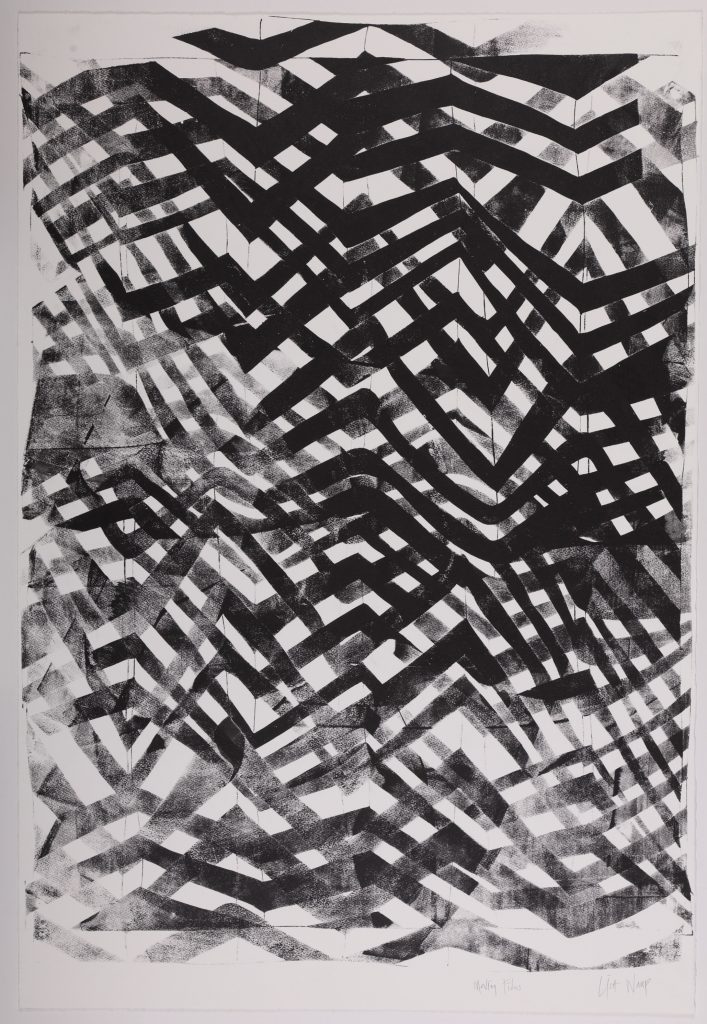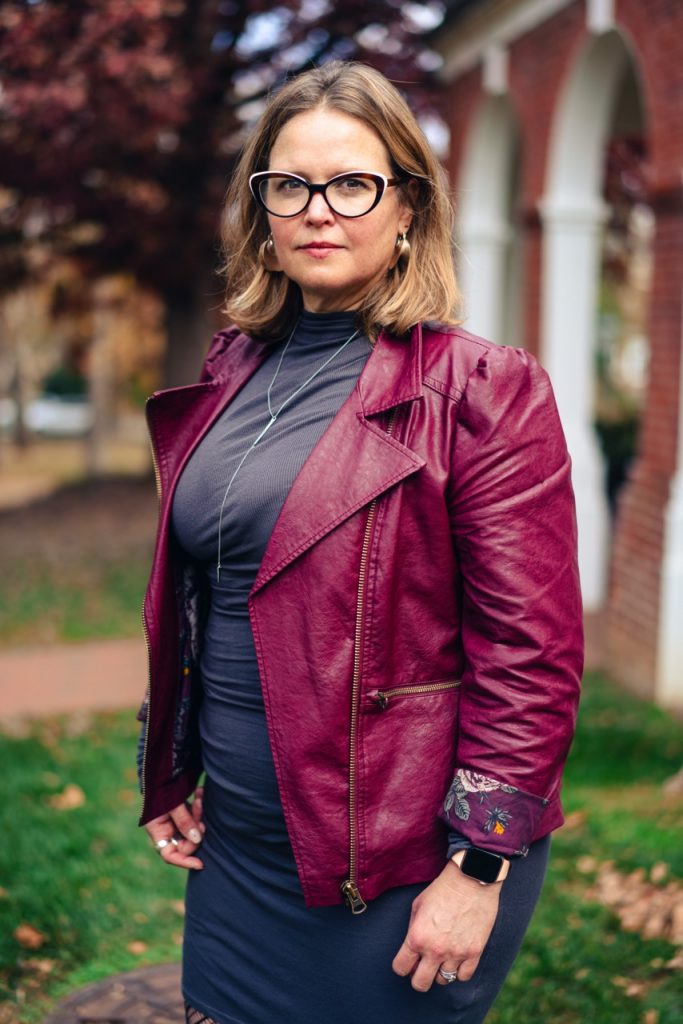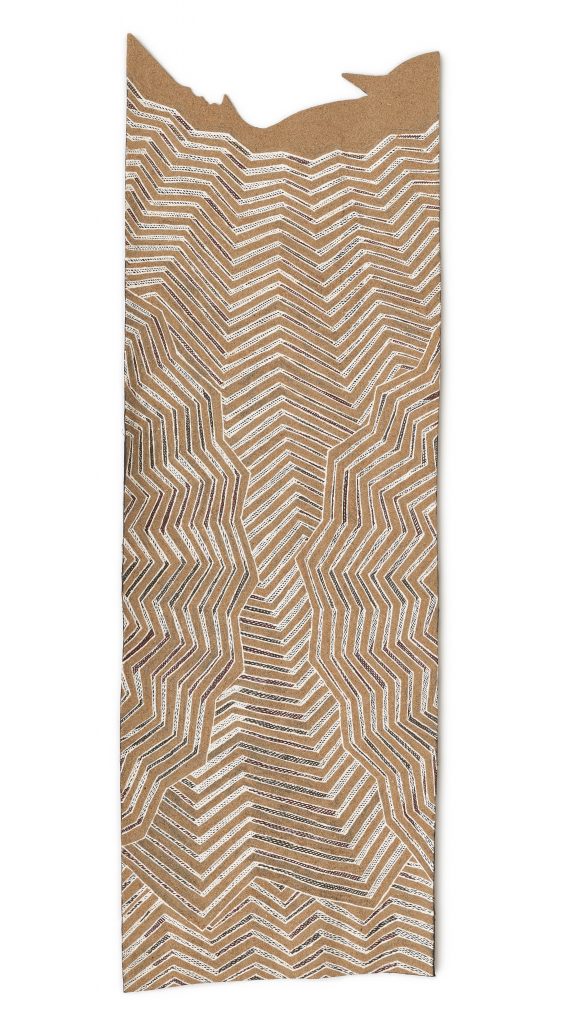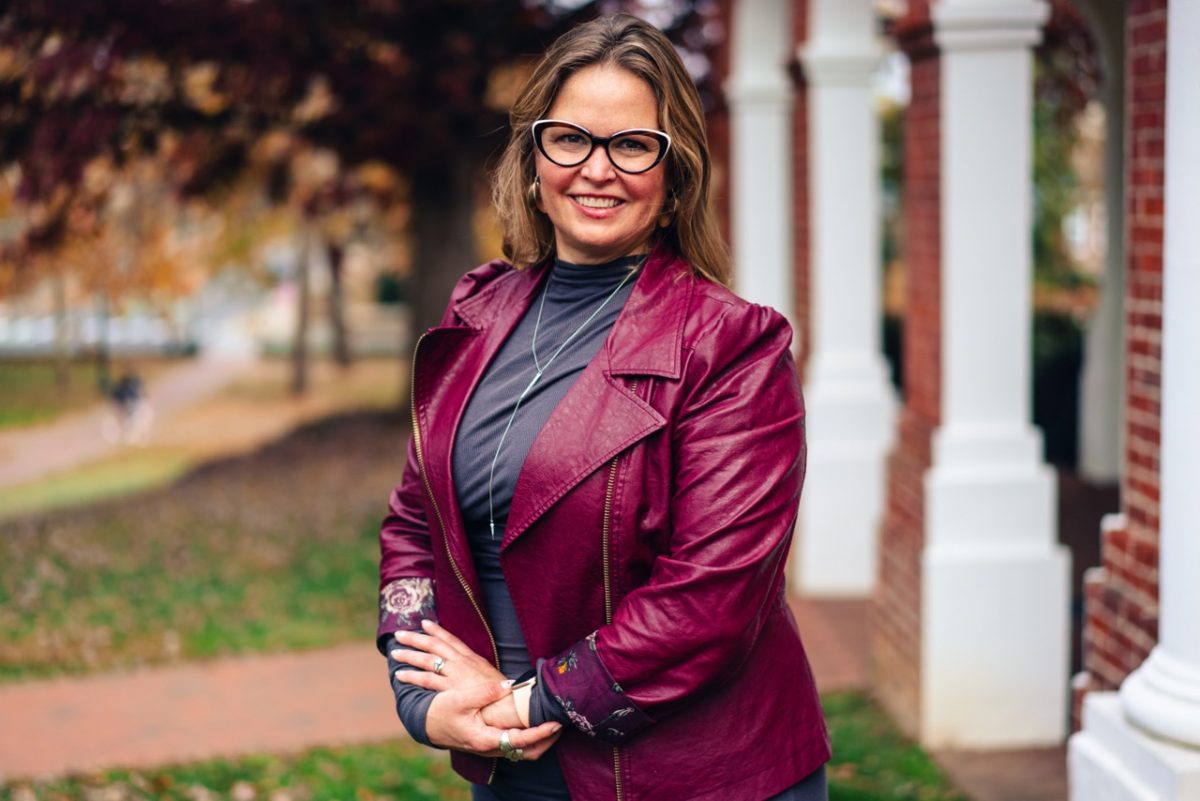January 29 marks the start of Karen Elizabeth Milbourne’s tenure as the J. Sanford Miller Family Director of The Fralin Museum of Art at the University of Virginia. Milbourne comes to UVA from the Smithsonian’s National Museum of African Art in Washington, D.C., where she was senior curator and acting head of knowledge production. A leading scholar in the field, Milbourne received her BA in African studies from Bryn Mawr College, and Ph.D. in art history from the University of Iowa.
Milbourne has won numerous awards and fellowships, including a Fulbright Fellowship, and several awards from the Smithsonian and others for curatorial excellence. Her writing has been published in edited volumes and journals including African Arts, Nka: Journal of Contemporary African Art, Art Papers, ARS, and Collections. Milbourne is the former chair of the Smithsonian Artist Research Fellowship program and currently serves on the scientific committee for Archives of Women Artists, Research and Exhibitions, and the advisory board for the Lusaka Contemporary Art Center.
She is arriving at an exciting time for the arts at UVA, with the second Charlottesville Indigenous Art Takeover on view now. The event is sponsored by the Kluge-Ruhe Aboriginal Art Collection and The Fralin, in concert with the exhibitions “Maḏayin: Eight Decades of Aboriginal Australian Bark Painting from Yirrkala” and “Voices of Connection: Garamut Slit Drums of New Guinea” at The Fralin. The former, the most significant exhibition of bark paintings to tour the United States, was largely curated by the artists themselves, who formed the concept, selected the works, and wrote all text associated with the exhibition, including catalog essays. A collaboration between Papua New Guinean scholars and UVA faculty, students, and museum staff, “Voices of Connection” showcases the instruments and people of Papua New Guinea and its offshore islands. Correlating exhibitions and events will be happening at the Kluge-Ruhe, Les Yeux du Monde, Second Street Gallery, and the Upper West Oval Room of the Rotunda.
Just as exciting are the plans to expand and elevate the arts at UVA by constructing a new multidisciplinary arts center. C-VILLE sat down with Milbourne to discuss her role.
C-VILLE Weekly: Can you tell me about your personal history with art? What set you on your path?
Karen Milbourne: I did not officially start studying art history until graduate school. I was always interested in the arts and took studio classes throughout college. I actually started out as a psychology major, but wasn’t loving running rats through mazes. I took an African art history class and suddenly everything made sense. It was just the right place for me. And so I created an independent major in African studies with a minor in studio art. For my junior year I applied to a program through Colgate University at the University of Nigeria in Nsukka. I was extremely fortunate because artists who now are incredibly world-famous, like El Anatsui, taught there. He used to just let me hang out in his studio while he was working. His monumental work “Behind the Red Moon” is currently installed at Tate Modern’s Turbine Hall.
I came back knowing this was something I was passionate about. That summer, I had an internship at the Museum for African Art in New York City, which led to my first job. Around the same time, Bryn Mawr was given an African art collection and I was made curator of it as an undergrad. So, I wasn’t technically studying art history because Bryn Mawr didn’t offer a focus on Africa in its program, but I was quite focused on the subject. I wrote my senior thesis on Nigerian modern art and then worked at the museum in New York for a couple of years before going to graduate school.

Looking at the exhibitions you’ve curated at NMAfA, the African art you focus on is contemporary mostly, isn’t it?
Mostly. I work largely in the global contemporary. I’ve worked with Africa’s arts across time and a lot of my effort has been to undermine or unsettle assumptions about what is or isn’t African art. For instance, people don’t understand that there’ve been African photographers since the 19th century and that masquerade is a contemporary art form.
Of all those exhibitions, which are you most proud of?
I’ll give you three examples because each represents something different. The first, “Earth Matters, Land as Material and Metaphor in the Arts of Africa” was a really wonderful collaboration across the Smithsonian campus. It included partnerships with the Environmental Film Festival, Dumbarton Oaks, the National Air and Space Museum, the American History Museum, and the Smithsonian Garden. So bringing all of those different groups together and looking at what the Earth means to all of us was really exciting and rewarding. And intellectually, it was thrilling to have that ability to pull that project together. But it also made me realize how challenging big projects can be in terms of sustainability. So many of the things that I wanted as relationships or because of changing institutional structures weren’t possible.
“I Am: Contemporary Women Artists of Africa” came about after I’d gone through the collection of the National Museum of African Art and realized that only 11 percent of the named artists in the collection self-identified as female. So that led to a women’s initiative where we’ve been able to bring the representation of women artists in the collection up to 25 percent. With that exhibition I was really looking at the history of one institution and what institutions need to do to change, and then modeling a different way of showing women artists. It wasn’t that ambitious a project. I wasn’t traveling all over the world and bringing my own new research to it. It was about implementing a different kind of structural change.
“From the Deep” [on view now at NMAfA] wasn’t about me, the expert, going to an artist and saying, “I like this one, that one and that one,” and taking those artworks back to the museum. It was working collaboratively with the artist, Ayana V. Jackson, to help push her practice forward. So it was a six-year process where I worked with her from seed to harvest, providing her the space to create the artwork and bringing it to an exhibition format. We did two pop-ups, one in Johannesburg, one in Cape Town, because she’s based in South Africa. We brought audiences in, the soundtrack wasn’t yet scored, so it was going on live around us and we asked audience members, if you sit this close, if you sit this far, how do you experience it? And Ayana got the feedback of how people were experiencing the exhibition, which then informed the finalization of the artwork. That sort of collaborative process is really very exciting to me.
As director of The Fralin, you’ll be stepping away from your curatorial activities. Are you going to miss that?
Very much so. But the opportunity to envision what a museum should be is such a tremendous opportunity. I’m excited about partnering with the Kluge-Ruhe and creating a museum system that includes the performing arts and is centered on indigenous perspectives. It just didn’t seem like an opportunity I’d ever get again.

What is the status of UVA’s Center for the Arts? Is it going forward?
Oh, it’s definitely going forward. The Fralin, the Kluge-Ruhe and the new performing arts center will all share a single space, which is really exciting to think in a multidisciplinary fashion. I’ve worked with a lot of live artists, so it’s wonderful to think about partnering with the performing arts.
You’ve been recognized for your collaborative approach. How do you plan on collaborating with other creative and performing arts entities across UVA and Charlottesville?
It’s exciting thinking about the brilliance that one can find around the UVA campus. I would love to partner with the new [School of] Data Science. One of the main issues facing museums is databases, particularly, how to create databases that are flexible to allow for differing knowledge systems. For example, we might label something Yoruba artist, 19th century. Well, Yoruba might identify that same thing by clan. So where do you put the clan name instead of cultural name? How do you account for gender fluidity? How do you both have a backend where you can input data to allow for greater inclusion, and create it so that it’s outward facing in a way that’s not contradictory to how anybody wishes to identify themselves.
There is also potential for collaboration with the law school looking at ethical stewardship of collections, looking at cultural patrimony laws and understanding those in relationship to our collections and thinking about how we take care of them and interact with and share them. So these are things I’m really excited about, as well as really thinking in a more multidisciplinary fashion.
Another reason I’m so excited is the new building. We have the opportunity to think flexibly from the get-go, and can include things like a sprung floor for dancers and comprehensive electrical cabling that can support something complicated like an immersive video.
I would consider you on the front lines of the culture wars, and we’re a divided country and UVA is kind of a microcosm of that. The Fralin’s diversity efforts in recent years are really admirable, but there are many who are resistant to this. How do you remain positive and effective in the face of these challenges?
I’ve never worked anywhere where there weren’t challenges. I think that’s sort of the nature of being alive in this world. But I think all of these individuals are looking at the world around them and trying to imagine new futures. And that’s what I’m trying to do, I’m imagining a future with the museum. So it’s really trying to work with somebody on that front rather than hashing out what you said or they said, or was it this way or that way. I’m interested in, What is the future that we can build together? I think that’s the space where we can find common ground.
Do you have any hobbies? What do you like to do in your free time?
I’m an avid walker. I walk upwards of five miles a day with my dog. And, as soon as I can find a pool, I will go back to swimming. So those are two passions of mine. I love to hang out with my kids (ages 13, 16, and 19), and I love to read.
What are you most looking forward to about moving to the Charlottesville area?
Well, outside of the brilliant colleagues at UVA, it probably is the mountains. The physical environment was definitely part of the appeal, and I would also say, the vineyards.

Charlottesville Indigenous Art Takeover 2024
The Fralin Museum of Art at the University of Virginia
- “Maḏayin: Eight Decades of Aboriginal Australian Bark Painting from Yirrkala,” February 3-July 14.
- Artist-led tour of the exhibition, February 2.
- First Friday reception with artists, February 2.
uvafralinartmuseum.virginia.edu
Kluge-Ruhe Aboriginal Art Collection of the University of Virginia
- “Performing Country,” through February 26.
- “close to the wind: Lisa Waup,” through June 30.
Les Yeux du Monde
- “Ukapalimin: Eti Ko Eti: Resilience: Stories from the Torres Strait,” February 3-April 21.
- Opening Reception with artists Solomon Booth, Lavinia Ketchell, and Joshua Thaiday, February 3.
Second Street Gallery
- First Nation Australia: Contemporary Artists from Buku-Larrŋgay Mulka Centre, Yirrkala, February 2-March 22.
- Breakfast conversation with the artists of Buku-Larrŋgay Mulka Centre, Yirrkala, February 2.
- First Friday opening with the artists, February 2.
- Traditional brush-making workshop with the artists, February 3.
The Rotunda at the University of Virginia
- “Waŋupini: Clouds of Remembrance and Return,” through July 7.
- The W. Wanambi Distinguished Lecture by Mayatili Marika (reception will follow in the Rotunda, Upper West Oval Room), February 3.




